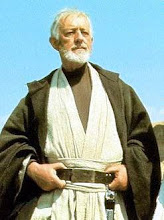"22 That ye may not be acursed with a sore cursing; and also, that ye may not incur the displeasure of a bjust God upon you, unto the destruction, yea, the eternal destruction of both soul and body."
I have heard the middle part of verse 21 quoted a number of times before. However, I didn't remember who said it and why. Lehi continues his discussion about life with his family. He is speaking to his sons, Laman and Lemuel. Lehi is about to die and he is worried about their disobedience. He says that in order that his soul might have joy for them, and that he might pass away with happiness with them, and not sorrow, he tells them to arise from the dust and be men. Arise from being idol with works of righteousness and to take on the challenge to follow the commandments and work hard to implement them in their lives. He challenges them to accomplish this by being of one heart and one mind, united in all things, so that they would not be held captive by the devil because they would be cut off from the presence of the Lord for not following the commandments.
Lehi feels that a sore cursing is imminent. This is not the first time he has mentioned it, I believe. He asks them to do things that would not incur the displeasure of a just God. God must be just with the wicked and the righteous. Lehi does not want his sons to receive the eternal destruction of both soul and body. This is a pretty heavy statement. Later we learn that Lehi blesses Laman and Lemuel's posterity so that the sin of the children and their posterity fall upon Laman and Lemuel (see 2 Nephi 4:6). With this in mind, it seems to be more realistic now and not so heavy.
I wonder if Lehi has felt these things all along or has just realized that this would happen recently, little by little. In any case, it is a testimony to us that we need to always follow the Lord.
I have heard the middle part of verse 21 quoted a number of times before. However, I didn't remember who said it and why. Lehi continues his discussion about life with his family. He is speaking to his sons, Laman and Lemuel. Lehi is about to die and he is worried about their disobedience. He says that in order that his soul might have joy for them, and that he might pass away with happiness with them, and not sorrow, he tells them to arise from the dust and be men. Arise from being idol with works of righteousness and to take on the challenge to follow the commandments and work hard to implement them in their lives. He challenges them to accomplish this by being of one heart and one mind, united in all things, so that they would not be held captive by the devil because they would be cut off from the presence of the Lord for not following the commandments.
Lehi feels that a sore cursing is imminent. This is not the first time he has mentioned it, I believe. He asks them to do things that would not incur the displeasure of a just God. God must be just with the wicked and the righteous. Lehi does not want his sons to receive the eternal destruction of both soul and body. This is a pretty heavy statement. Later we learn that Lehi blesses Laman and Lemuel's posterity so that the sin of the children and their posterity fall upon Laman and Lemuel (see 2 Nephi 4:6). With this in mind, it seems to be more realistic now and not so heavy.
I wonder if Lehi has felt these things all along or has just realized that this would happen recently, little by little. In any case, it is a testimony to us that we need to always follow the Lord.

No comments:
Post a Comment